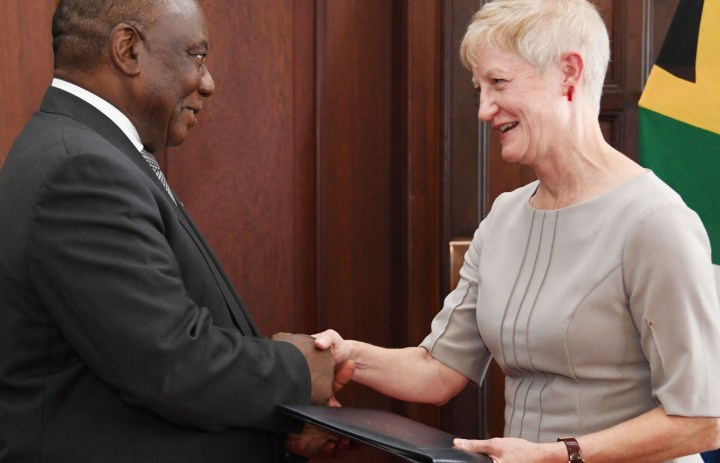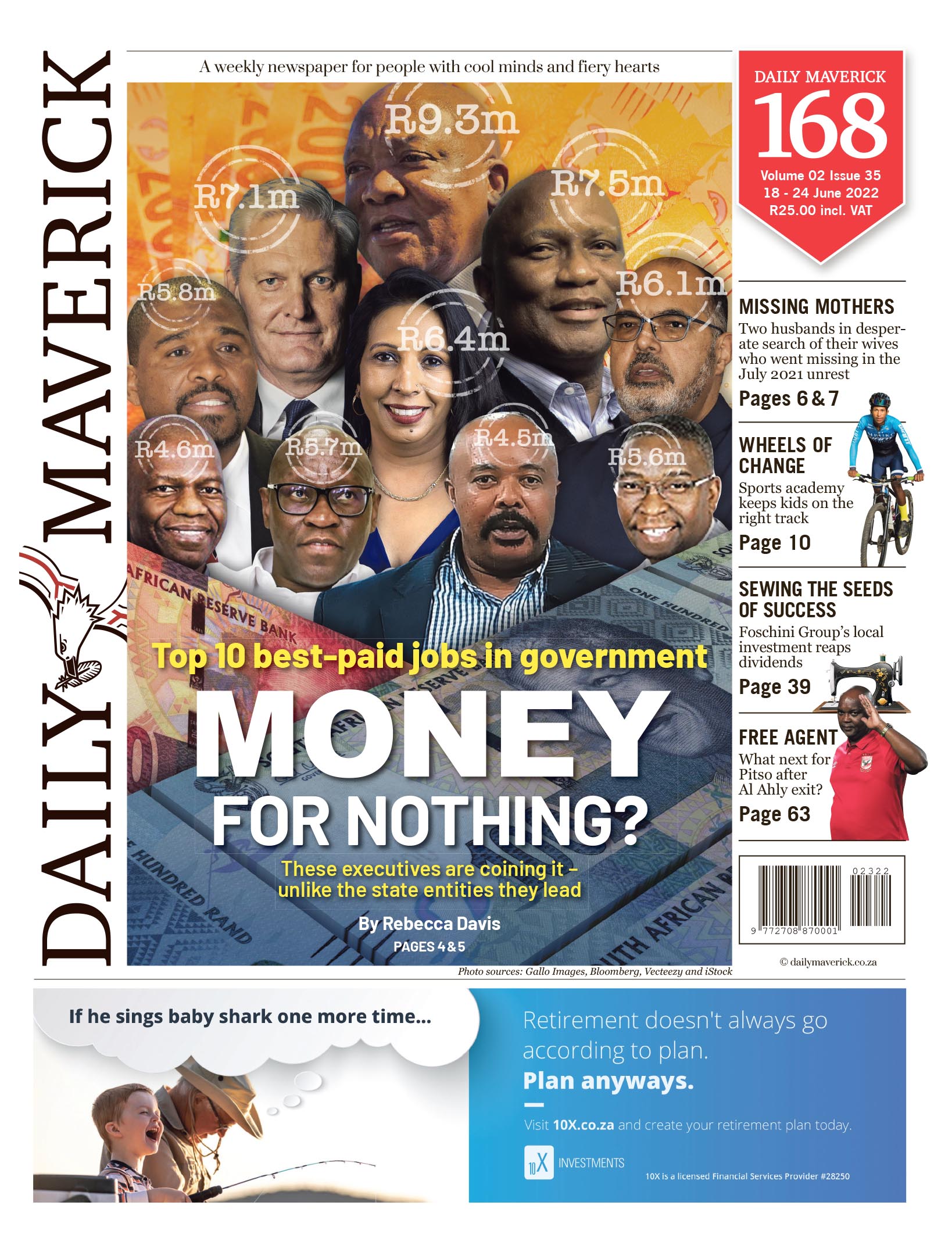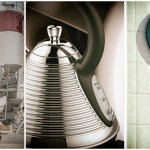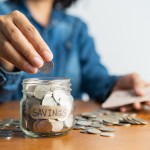EXIT INTERVIEW
EU’s departing ambassador to SA reflects on Ukraine, Covid-19, energy transition and trade

European Union ambassador Riina Kionka is leaving South Africa after a tour marked by expanded trade and major support for South Africa’s just energy transition and vaccine production – but also the trauma of Covid-19 and tension over Ukraine.
On Riina Kionka’s watch as EU ambassador, South Africa registered its first trade surplus with the EU, despite Covid-19; the EU and other Western states agreed to put up $8.5-billion in financing to help South Africa move from its heavy dependence on coal-fired electricity generation towards renewables; and they also began supporting South Africa’s development of its own mRNA vaccines for Covid-19 and other diseases.
But Russia’s invasion of Ukraine on 24 February clearly strained relations because of the yawning difference between Europe’s full military and other support for Ukraine and Pretoria’s reluctance even to condemn Russia’s aggression.
Kionka – who, as an Estonian, clearly feels the existential threat of Russia more keenly than most – raised eyebrows in the South African government with her comments about South Africa’s position.
On 3 March, the day after South Africa abstained from a widely supported resolution in the United Nations General Assembly condemning Russia’s aggression against Ukraine, Kionka tweeted: “We were puzzled because RSA sees itself and is seen by the world as a country championing human rights, international law and the rule of law.”
Did you get into any kind of trouble for that? Daily Maverick asked her in an interview on her last day in office.
“I heard echoes,” she replied. “I think… ‘puzzled’ became the word of choice for the frustration and lack of understanding of the [South African] position, among those of us who believe this is an unjustifiable, illegal war.”
In retrospect, Kionka says, South Africa’s “non-aligned” stance on the war was not so surprising, given its previous positions. “But we were disappointed and we regretted that decision.”
The trouble with lobbying
She also saw a lot of misunderstanding of the diplomatic lobbying by Western countries of Pretoria. “All countries lobby other countries and try to encourage them to vote one way or another way. This is not countries telling other countries what to do,” she said, implicitly referring to International Relations and Cooperation Minister Naledi Pandor’s public complaint to that effect.
The lobbying of South Africa by the EU countries and others was wrongly taken “as not listening to South Africa, as not taking into consideration its own views. As not even consulting.”
However, Kionka does acknowledge that when the early resolutions on Ukraine were being negotiated at the UN in New York in March, “there wasn’t as much consultation as there should have been” by the EU and others, with South Africa. “We were hearing and not listening to concerns enough,” she concedes.
If South Africa’s basic non-aligned position was not really so surprising, what did surprise her was the “whataboutism” – South Africa’s argument that while Western countries were demanding Pretoria condemn Russia, they themselves never condemned or punished, say, Israel, for its occupation of Palestine.
This “knee-jerk reaction” – mainly from the general public and the media – failed “to consider this conflict on its own merits, with its own argument and facts and history. The reaction was always what about this or what about that country. And yet this is an existential question for Europe. It’s on our borders.”
But how does the EU respond to Pandor’s argument that it has not reacted in the same way to Palestine as to Ukraine?
“I think we have a tendency to see things in sharper relief – and this is around the world – that are far away from us,” she replies. “And the closer the conflict is, the less buffer we have in terms of analytical thinking, maybe.”
Kionka noted that Pretoria’s position on the conundrum presented by the war had recently become clearer.
“It’s clear that the government certainly does not support the war, wants to stop the war, thinks it’s horrible what’s happening, what Russia is doing in Ukraine,” she said, based on private conversations with senior government officials.
But Pretoria was hesitant to name names or take action like those the EU and others were taking because it believed in the strong power of negotiations, as a result of South Africa’s own history. Yet, she recalls the ANC itself twice broke off negotiations with the apartheid government in the early 1990s because of “unbearable” increased violence.
“And somehow that’s forgotten.
“So, negotiations are indeed the way of the future, but not all wars end in negotiations.
“But I don’t find it productive anymore to go over the reasons why we think in one way and South Africa thinks in another way,” Kionka adds, rather wearily. “I think we have to find a way to go forward, agreeing to disagree, agreeing to listen and consult more as real partners and also talking frankly when we need to.
“That’s what friends are for… Maybe we’re uber-polite sometimes to each other.”
But would the spats over Ukraine do any lasting damage to the relationship between the EU and South Africa?
“I can tell you that there is no interest, certainly in the EU, in punishing anybody. Because we need South Africa and South Africa needs us.”
Yet she adds: “I think there are wounds that need to be healed for sure. And time will tell whether those wounds will leave a scar or not.”
Will the disagreements over Ukraine discourage investment? Will the EU and its member states be less likely to help South Africa in the future?
“I think we’re too early in the process… This is a cataclysmic event that will change a lot of how the world works. And I think it’s too early to say what the outlines will look like.”
But clearly, Russia’s invasion of Ukraine has already brought the EU closer together, Kionka observes, noting, for instance, how the Danish people had just voted in a referendum to rejoin defence and security cooperation within the EU, after opting out 30 years ago.
And two EU members, Sweden and Finland, historically non-aligned, are now seeking Nato membership. “Of course, Nato is not the EU, but we work hand-in-hand.”
But Kionka pauses – as indeed the EU itself seems to be pausing – over her answer to the crucial question: will the EU admit Ukraine as a member?
“Well, I think personally, yes. I think eventually it will” – though she adds member states would have to decide.
Green in retrospect
Looking beyond Ukraine, Kionka said, “despite Covid we’ve got a fair bit done during my time here”.
One was the green agenda, the energy transition. The flagship of the EU’s wider support for South Africa is the Just Energy Transition Partnership (JETP) – also including the US, the UK, Germany and France – which was launched at the COP26 international climate conference in Glasgow last November. They pledged an initial$8.5-billion to support South Africa’s goal of net-zero carbon emissions by 2050, while also creating sustainable jobs and livelihoods.
Some partners are getting worried about Pretoria’s slow pace of implementing the JETP. Kionka said “things are finally starting to move”, citing the appointment of a task force. Now the partners wanted to see an investment plan, with projects they could put money behind the JETP, including private investment.
She noted that the looming deadline – this year’s COP27 in Egypt in November – was “sharpening minds”.
South Africa and its partners would have to show progress by the time of this event because the JETP was not only about South Africa itself, but was also a model for other countries. It was an experiment and everyone would be looking for lessons to be replicated elsewhere.
A win for rooibos, now for the lamb
On trade, the good news is that despite Covid, South Africa increased its exports of agri-food to the EU – and its overall exports grew by 30% – in 2021, producing the first South African trade surplus – of about R15-billion – since free trade was launched in 2004.
Kionka said she was “thrilled” by an emblematic event – handing over a rooibos certificate to South Africa’s rooibos industry in 2021. This was a culmination of “20 years of huge work” to get rooibos on the EU list of Geographical Indications.
This means that only rooibos produced in South Africa can call itself rooibos. It joins the ranks of such famous European geographical indications as Champagne, Kalamata olives and Roquefort cheese, which may be sold in Europe under those names only if they come from those regions.
“It marks an important milestone in EU-South Africa trade relations because being on that Geographical Indications really increases exports,” Kionka said. “It’s a mark of quality. It was the first product on the African continent to get that designation.”
Kionka said the likely next Geographical Indication for South Africa, “Karoo lamb”, was in the works.
Apart from being South Africa’s largest trading partner, the EU is also the biggest investor in South Africa, with more than 40% of total investment, helping to create about 350,000 direct jobs.
On the downside of trade, though, Kionka regrets that South Africa and the EU “didn’t make a lot of headway” during her tour, on some of the “well-known irritants – chicken, citrus and some phytosanitary issues”. This refers to South Africa imposing high tariffs on imported EU chicken to protect local producers and the EU blocking imports of some South African citrus because of black spot fungus.
And she expressed some concern about an apparent lack of interest on the side of South Africa and the five other Southern African Development Community (SADC) member states of the EU-SADC Economic Partnership Agreement (EPA) in tweaking the deal – which now governs preferential trade between them – “so it works better for us”.
There should be a five-year review of the EPA in 2022.
Not reviewing it would be a missed opportunity, especially for South Africa which has done particularly well from the EPA.
Another shot in the arm
Another plus on Kionka’s watch has been the financial support by the EU and other international partners of Cape Town pharmaceutical company Biovac’s production of Pfizer-BioNTech’s Covid-19 vaccine and other mRNA vaccines which Biovac would develop itself.
The Covid-19 pandemic was, of course, a disaster globally and it also put some strain on relations between the EU and South Africa because of the strict restrictions some EU member states in particular imposed on travel to and from southern Africa. Many in South Africa perceived these as discriminatory.
Kionka said that while she understood the strong reaction to those restrictions, at the time the Omicron variant appeared – thanks to the transparency of South Africa’s world-class scientific community – Europe itself was going through a very difficult wave. So, European leaders took their responsibility to their domestic constituencies seriously and moved, “perhaps with undue haste”, to close off travel.
Kionka extracts from the pandemic one positive – that she and her delegation were able to help so many EU citizens to fly home at the start of the pandemic after travel restrictions had been imposed, by filling the special charter repatriation flights organised by EU member states.
“So, it was important, it was also a big deal for us because we could add value and we could show European citizens just how good it is to be in this club, the European Union, during times of crisis. And of course, we couldn’t have done that without the support of the South African government.”
Kionka’s next assignment will be as the EU’s ambassador to Pakistan. “It was my first choice, because it’s a strategic country for the EU. And I always like a challenge more than a cushy assignment.”
Far from cushy. Kionka said she was about to start a hostile environment awareness course, “to learn how to behave in situations with insurgents and if you’re taken hostage, and things like that”. DM168
This story first appeared in our weekly Daily Maverick 168 newspaper, which is available countrywide for R25.



















 Become an Insider
Become an Insider
Comments - Please login in order to comment.